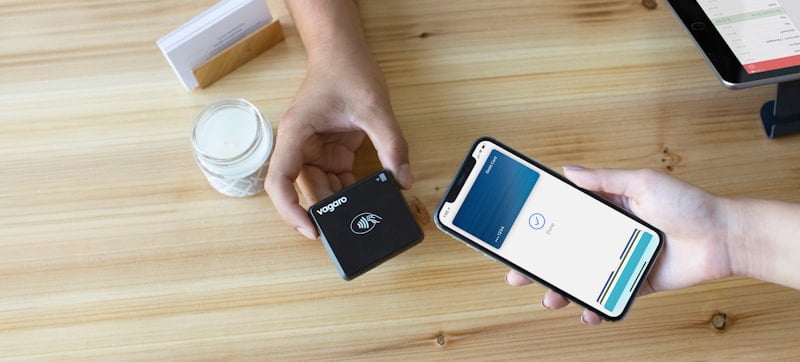How Can You Protect Your Credit When You’re Unemployed?

Another strategy is to prioritize your expenses. When money is tight, it’s essential to focus on necessities like housing, utilities, and groceries. By carefully budgeting and cutting back on non-essential spending, you can free up funds to cover these critical expenses without relying heavily on credit.
Consider exploring assistance programs. Depending on your circumstances, you may qualify for unemployment benefits, food assistance, or other forms of aid. These programs can provide temporary relief, allowing you to allocate more resources towards maintaining your financial stability and protecting your credit.
It’s also wise to monitor your credit report regularly. Look for any errors or discrepancies that could be negatively impacting your score. Reporting inaccuracies promptly can help ensure that your credit score accurately reflects your financial situation.
Lastly, think long-term. While unemployment may be a temporary setback, taking proactive steps now can help mitigate its long-term effects on your credit. Stay focused on your financial goals and seek guidance from financial advisors or credit counselors if needed.
Protecting your credit during unemployment requires diligence and proactive communication. By taking these steps, you can navigate this challenging time with greater confidence and minimize the impact on your financial future.
Navigating Unemployment: Expert Tips to Safeguard Your Credit Score
Firstly, communication is key. Reach out to your creditors as soon as possible. Many lenders offer hardship programs that can temporarily lower or defer payments, helping you avoid missed payments that can negatively impact your credit score.
Secondly, prioritize essential expenses. Focus on covering necessities like housing, utilities, and groceries. By managing these expenses carefully, you can free up resources to continue making at least minimum payments on your debts, which is crucial for maintaining your credit score.
Additionally, consider exploring income alternatives. Whether it’s freelancing, part-time work, or gig economy opportunities, supplementing your income can alleviate financial strain and provide stability during unemployment. This proactive approach not only helps your immediate financial situation but also demonstrates responsibility to creditors.
Moreover, monitoring your credit report regularly is essential. Look for any inaccuracies or discrepancies that could affect your score negatively. Reporting errors promptly ensures your credit profile remains accurate and reflects your true financial standing.
Lastly, stay optimistic and proactive. Utilize this period to enhance your financial literacy and explore options for long-term financial security. Remember, challenges like unemployment are temporary, and with diligent effort, you can emerge stronger financially.
Navigating unemployment while safeguarding your credit score requires diligence and proactive planning. By employing these expert tips, you can navigate this challenging time while maintaining financial stability and protecting your creditworthiness.
Financial Resilience: Strategies to Shield Your Credit During Unemployment
Firstly, communication is key. Reach out to your creditors before missing payments. Many lenders offer hardship programs or temporary forbearance options that can prevent missed payments from damaging your credit score. Remember, they want to see you succeed financially, especially during unexpected setbacks like unemployment.

Consider tapping into emergency savings or unemployment benefits early on. While it may seem daunting to dip into savings, these resources are designed precisely for times like these. They can provide a buffer that allows you to maintain financial stability without resorting to credit cards or loans with potentially higher interest rates.
Another effective strategy is to explore freelance work or part-time gigs to supplement your income. Platforms like Upwork, Fiverr, or even local job boards can offer temporary opportunities to generate income and cover immediate expenses. Every dollar earned through these channels is one less dollar borrowed.
Furthermore, monitor your credit report regularly. Understanding your financial standing empowers you to spot errors or discrepancies early on. By staying vigilant, you can address issues promptly and prevent inaccuracies from negatively impacting your credit score.
Lastly, remember that financial resilience is a journey, not a destination. Building and maintaining good credit takes time and effort. By implementing these strategies proactively, you’re not just weathering the storm of unemployment—you’re laying a foundation for future financial success.
Credit Protection 101: Essential Steps for the Unemployed
Firstly, monitor your credit report regularly. Your credit report is your financial footprint, detailing your credit history and status. Checking it regularly helps you stay informed about any changes or potential issues.
Secondly, consider placing a fraud alert or credit freeze. These measures can prevent unauthorized access to your credit information, adding an extra layer of security during periods of financial uncertainty.
Thirdly, communicate with your creditors. If you’re unable to make payments on time, reach out to your creditors proactively. Many creditors offer hardship programs or alternative payment arrangements that can help you avoid negative impacts on your credit score.
Fourthly, budget wisely. While unemployed, managing expenses is crucial. Creating a budget can help you prioritize essential expenses and allocate funds towards debt payments, minimizing the risk of delinquencies.
Fifthly, explore unemployment assistance programs. Some programs offer financial counseling or assistance with credit-related issues. Understanding the resources available to you can make a significant difference in protecting your credit.
Sixthly, be cautious of credit offers. During financial hardship, you may receive offers for new credit cards or loans. Evaluate these offers carefully and avoid taking on additional debt unless absolutely necessary.
Lastly, educate yourself about credit rights and protections. Knowing your rights under consumer protection laws can empower you to take action if you encounter unfair or deceptive practices.
Navigating credit protection while unemployed requires diligence and proactive measures. By staying informed and taking strategic steps to protect your credit, you can mitigate financial risks and maintain your financial well-being during challenging times.
Maintaining Credit Health Amid Job Loss: Vital Dos and Don’ts
Losing a job can be a challenging experience, not only emotionally but also financially. One of the critical areas affected by sudden unemployment is your credit health. Here, we explore essential strategies—both proactive and precautionary—to help you navigate this period without compromising your creditworthiness.
Do Understand Your Financial Situation: The first step in safeguarding your credit health during job loss is to assess your financial standing comprehensively. Calculate your savings, prioritize essential expenses, and evaluate your debt obligations. Understanding where you stand financially empowers you to make informed decisions moving forward.
Don’t Ignore Your Creditors: Communication is key when facing financial difficulties. Rather than avoiding your creditors, reach out to them proactively. Many creditors offer hardship programs or temporary forbearance options that can provide relief during periods of unemployment. Exploring these alternatives can help you manage your obligations without defaulting on payments.
Do Create a Budget: Establishing a budget tailored to your current financial situation is crucial. Identify necessary expenses such as housing, utilities, and groceries, and allocate funds accordingly. Cutting back on non-essential spending can free up resources to cover essential bills and avoid accruing additional debt.
Don’t Max Out Your Credit Cards: While it may be tempting to rely on credit cards to cover expenses during job loss, it’s essential to use them judiciously. Maxing out your credit cards can negatively impact your credit utilization ratio, a significant factor in determining your credit score. Aim to keep your credit utilization below 30% to maintain a healthy credit profile.
Do Prioritize Bill Payments: Timely payment of bills, including credit card payments and loan installments, is crucial for preserving your credit health. Missing payments can lead to late fees, increased interest rates, and negative marks on your credit report. Consider setting up automatic payments or reminders to ensure bills are paid on time, even during periods of financial uncertainty.
Don’t Apply for Multiple Credit Cards or Loans: Avoid the temptation to apply for new credit cards or loans while unemployed unless absolutely necessary. Each credit application triggers a hard inquiry on your credit report, which can temporarily lower your credit score. Focus instead on managing existing credit responsibly until your financial situation stabilizes.
Do Monitor Your Credit Report Regularly: Stay vigilant about your credit health by monitoring your credit report regularly. Check for inaccuracies or unauthorized transactions that could potentially harm your credit score. Reporting any discrepancies promptly ensures your credit information remains accurate and up to date.
Navigating job loss while maintaining credit health requires proactive financial management and strategic decision-making. By adopting these dos and avoiding these don’ts, you can mitigate the impact of unemployment on your creditworthiness and position yourself for financial stability in the future.
Smart Moves: Preserving Your Credit Rating Through Unemployment Challenges
Firstly, staying on top of your bills is crucial. Missing payments can significantly impact your credit score. Prioritize essential payments like rent, utilities, and insurance. Consider contacting creditors to discuss repayment options if you’re unable to meet deadlines.
Next, keep an eye on your credit report. You’re entitled to a free credit report annually from each of the major credit bureaus. Monitoring your report allows you to spot any errors or unauthorized activities early on. Reporting these promptly can prevent them from affecting your score.
Another smart move is to minimize new debt. While it may be tempting to rely on credit cards or loans to cover expenses, taking on new debt without a stable income can be risky. Focus on managing existing debt responsibly instead of adding more financial burden.

Additionally, exploring assistance programs can offer temporary relief. Many organizations and government agencies provide support to individuals facing financial hardship. Utilizing these resources can help you stay afloat without jeopardizing your credit standing.
Lastly, consider seeking professional advice if you’re struggling to manage your finances. Credit counselors can offer personalized guidance on budgeting, debt management, and improving your credit score. Their expertise can be invaluable in navigating through unemployment challenges while preserving your financial health.
By implementing these smart moves, you can proactively protect your credit rating during unemployment. Remember, staying informed and proactive is key to weathering financial uncertainties with minimal impact on your long-term financial goals.
Crucial Advice: Safeguarding Your Creditworthiness While Unemployed
Firstly, prioritize essentials. When finances are tight, focus on covering necessities like rent, utilities, and groceries. Prioritize these over discretionary spending to avoid falling behind on crucial payments that could harm your credit score.
Next, communicate proactively with creditors. Many people hesitate to reach out when facing financial difficulty, but most creditors are willing to work with you if you’re upfront about your situation. Explore options such as payment plans or temporary reduced payments.
Consider utilizing savings or emergency funds if available. While it’s ideal to preserve these for true emergencies, they can provide a buffer during unemployment, preventing missed payments that negatively impact your creditworthiness.
Another effective strategy is to monitor your credit report regularly. By law, you’re entitled to one free credit report per year from each of the three major credit bureaus. Reviewing this allows you to catch any errors or signs of identity theft early, which could otherwise harm your credit score.
Additionally, refrain from applying for new credit unless absolutely necessary. Each application typically results in a hard inquiry, which can lower your score slightly. During unemployment, focus on maintaining your current financial standing rather than acquiring new debt.
Lastly, consider alternative income sources. While actively seeking full-time employment, explore freelance work, part-time gigs, or temporary jobs. Not only can these provide income, but they also demonstrate to creditors that you’re actively managing your financial situation.
By implementing these strategies, you can navigate unemployment without sacrificing your creditworthiness. Remember, maintaining a good credit score is a long-term endeavor, and proactive steps during challenging times can pay off in the future.
